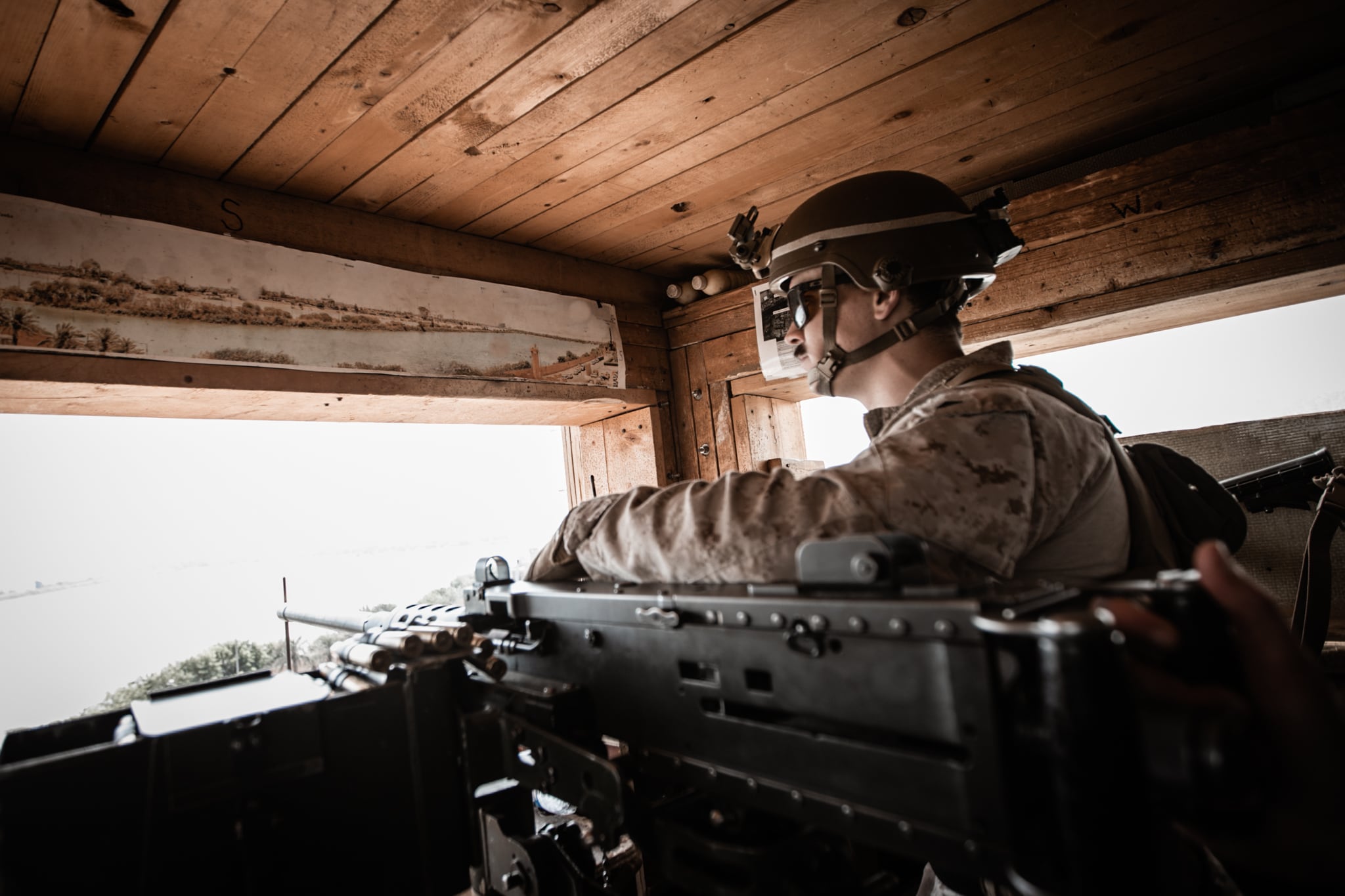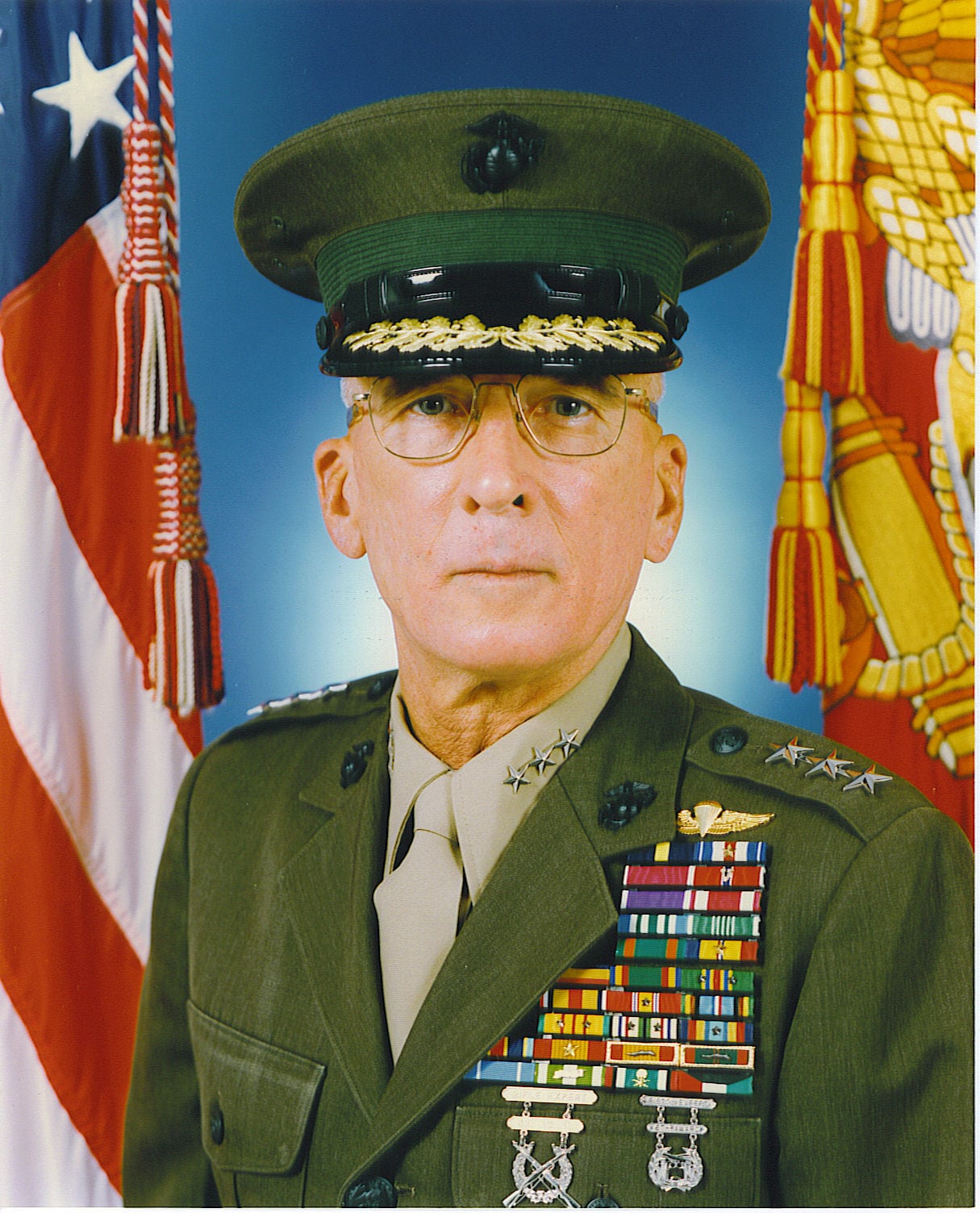On an early fall day in 1956 I signed a contract to become a United States Marine, and soon found myself undergoing the rigors of recruit training at Parris Island, South Carolina.
Shortly after I had earned the right to wear the Eagle, Globe and Anchor, a gunnery sergeant had handed each Marine in our platoon several stickers bearing the words “Force in Readiness.” He had gone on to explain that this phrase meant that when our nation was least ready for war Marines would be the most ready.
The message was clear: Each day we needed to ensure that we were fully prepared to be the “first to fight.”
For my subsequent 41 years in uniform, I learned readiness was not an empty slogan — it was real. And that readiness paid off when I served alongside my fellow Marines in five separate combat tours.
RELATED

In 1963, after paying close attention to my noncommissioned officers, studying hard and staying in shape, I was given the opportunity to attend officer candidate school at Quantico, Virginia. Following commissioning as a second lieutenant I attended The Basic School. From the outset, instructors there emphasized the importance of combined arms ― that is, ensuring that infantry never fought alone, but always in combination with tanks, artillery, engineers, logistics support, helicopter gunships and attack aircraft.
As the Corps’ newest officers, we repeatedly were told that the Corps was an air-ground combined-arms team.
We were taught to orchestrate these capabilities to place our enemies on the horns of a dilemma. For example, when the artillery and air drove foes into entrenchments we could advance to bring our direct-fire weapons to bear; if they rose to engage us they would suffer from the effects of artillery and air.
Today’s war in Ukraine provides stark evidence that this is a lesson the Russian military failed to learn. This war also has proved that militaries that fail to appreciate the importance of logistics before and during a fight soon find themselves with great difficulties.
Throughout my career, the Marine Corps air-ground combined-arms team, backed by solid logistics support, time and again demonstrated its vital importance to our national security.

Sixty-six years later, I still consider myself a United States Marine. But I’m saddened beyond belief knowing that our Marine Corps soon will no longer be the ready combined-arms force that our nation has long depended upon when its interests were threatened.
It will be a force shorn of all its tanks and 76% of its cannon artillery, and with 41% fewer Marines in its infantry battalions. To make the situation even worse, there will be 33% fewer aircraft available to support riflemen on the ground.
These divestures were and are being made to provide the resources for three Marine littoral regiments, designed to support naval campaigns for sea denial and sea control by firing anti-ship missiles.
So, the Marine Corps will trade its combined-arms flexibility for a very specialized mission that the U.S. Army already can provide in greater numbers than the Marine Corps ever will.
Moreover, for as long as eight years the Corps will be neither the powerful forcible-entry force in readiness it has been for decades nor the specialized anti-ship force of the future — neither fish nor fowl — which will seriously jeopardize national security. This is a risk not worth taking.
In the end the Corps will have more space experts, cyber warriors, influence specialists, missileers and others with unique skills — many of which already are provided by other elements of the joint force. But it will only have them because it gave up Marines prepared to close with and destroy the enemy.
The Corps will become something unrecognizable to those legions of Marines who went before. No longer will it be the Corps I served and loved for so many years, but a mere shadow of what was once a feared fighting force!
Marines, how could we let this happen?
Lt. Gen. Paul K. Van Riper retired from the United States Marine Corps after more than 41 years of commissioned and enlisted service. He has remained involved in the national security community as an instructor, adviser and mentor to a number of organizations.
Have an opinion?
This article is an op-ed and, as such, the opinions expressed are those of the author. If you would like to respond or have an editorial of your own you would like to submit, please email Marine Corps Times Editor Andrea Scott.
Want more perspectives like this sent straight to you? Subscribe to get our Commentary & Opinion newsletter once a week.





